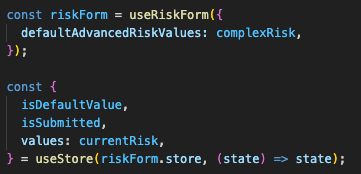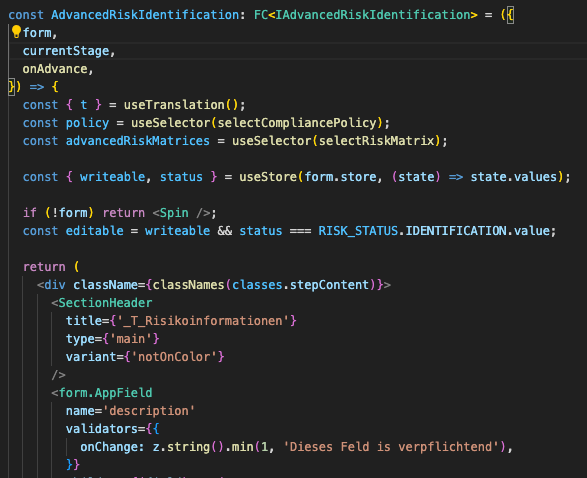useStore vs withForm
I am currently refactoring a feature where I fetch a set of data from my backend and the user can change fields of the fetched data with inputs. Currently it is one big
useState and the onChangemutableDataObject is prop-drilled down to every component that needs to change the data. It is a multi-step "form". Really just fields on a Page the user can edit. Now to my question. If i wrap the whole page with my form and all steps are only conditionally rendered. What is the benefit of using
withFormwithFormuseStore of the form and then rendering the fields as normal. All i really need would be a hook to get my current form via an id to not prop-drill it. The docs only specify to use
withFormNote for the screenshots:
complexRisk is my fetched data and currentRisk is the mutable local data for the user

